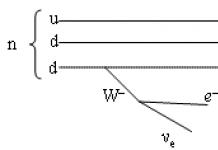Reading time: 2 minutes
Introvert and extrovert are fundamentally different psychological types of personality. In psychology, three psychotypes are distinguished: introvert, extrovert, ambivert. Introvert and extrovert refer to two very opposing personality types. An extrovert is a type of person whose behavior is directed at the people around him, active interaction with them. An introvert is a type of person whose actions are directed inward, that is, towards oneself. Ambivert is a person who combines all the qualities of an extrovert and an introvert.
The definition of extrovert and introvert consists of the following characteristics. Extroverts prefer to communicate with different people, try to attract the attention of others, so they often participate in public speeches, contests, and crowded events.
Introverts are less focused on communication and various activities, they are more comfortable spending time alone with inner reflections, anxieties or feelings. Often introverts are creative people, they also prefer to observe any social processes from the outside, but not take part in them.
For an extrovert, for a comfortable state, it is necessary to have people near him, whose help he can also use in a collective endeavor. An introvert, on the other hand, is alien to everything that involves interaction with others, he is comfortable working alone, with his own strength, not expecting or accepting help from anyone.
The concept of introvert and extrovert is one of the basic characteristics of a person, since they determine the direction of behavior, the main motives and the nature of the relationship.
Introvert and extrovert, who is this
The definition of extrovert and introvert lies in the characteristics of their energy. Since all vital processes are energy-intensive, the way to compensate for this energy is a very important process for every person. Usually, recuperation occurs at the expense of food and sleep, only certain individuals need additional resources. So, extroverts need society, from communication they receive an additional charge of positiveness and strength. Without active interaction with other personalities, extroverts begin to "wither" before our eyes. Introverts have enough sleep, they can go through the day without communication with anyone. It follows from this definition that the extrovert is to some extent an "energy vampire." An "energy vampire" is a person in need of energy recharging. Replenishment of reserves occurs by absorbing the energy of other people, doing this in a non-constructive way.
Thus, the energy vampire is an extrovert who gains energy through inflicting pain on other people (insulting, threatening, blackmailing, criticizing).
But if you declare that the energy vampire is an extrovert, then you must first indicate that not all extroverts are extroverts. Most extroverts who receive energy from people do it through good, benefiting others.
To understand how an extrovert differs from an introvert, you need to observe a person's behavior. The whole essence is best expressed in behavior.
Often, almost all people in friendly companies tell jokes to each other from time to time, but there is such a person in the company, whose jokes always seem the most ridiculous, funny and funny, and everyone is ready to listen to this person for hours. This person is without a doubt, an extrovert who brings pleasure to other people and himself enjoys it.
In every office, every company or factory, workers can be found extroverted and introverted. And each of them, both extrovert and introvert, has advantages and disadvantages. For effective performance and efficiency, it is necessary that all the advantages of an extrovert and an introvert are fully utilized one hundred percent. Disadvantages, in turn, on the contrary, it is necessary to try to rework in order to turn them into advantages.
It is possible to highlight the main advantages of an introvert in his professional activities. The introvert's propensity for individual work prevents many problems, since all responsibility for the implementation lies with him alone, and in the event of any misunderstandings, then all questions will be posed to only one introvert, and he, in turn, knows well what he is doing and not on who will shove the blame.
Professionally significant advantages of the extrovert: the ease of making new contacts allows the extrovert to conclude successful deals, conduct interviews. Extroverts are so confident and sociable that it doesn't really matter to them who stands in front of them, be it an ambassador or an ordinary worker, they know their job, their job is their life.
Extroverts are sociable with friends and equally sociable at work. Extroverts do not have public speeches, on the contrary, the more they see people in front of them, whose eyes are fixed on them, the more they feel self-confidence, as they are saturated with the energy of the audience.
In addition to the merits of introverts, they also have disadvantages. Because of their personality traits, introverts do not communicate well with their boss or work colleagues if they have to meet. Through too solitary work, introverts may find it even more difficult to communicate, since there is no need for communication, and at work they do not have to talk to anyone at all. Lack of ability becomes a big problem for introverts, but if their job is solitary activity, then they will do it at a high level.
Although extroverts are loved and accepted by almost everyone in their circle, since they are active, sociable, want to develop, self-actualize, at first it seems difficult to identify some of their shortcomings. But just due to the fact that extroverts are too active, they are mistaken for irresponsible people, since their mood can change quite often, and this affects their performance. An extrovert in business and in personal communication, in most cases, does not worry about the comfort of the interlocutor or client. Even if a person expresses negative reactions, the extrovert also accepts them, since this is also energy. Extroverts have a weakness in public speaking, so by getting too carried away with their performance, the extrovert can turn it into a farce.
Extrovert and introvert, you can give some recommendations, using which they can develop patterns of behavior, as in the opposite personality type.
Introverts must learn to communicate with people in such a way as to receive only a positive reaction from the interlocutor or from his listener. To do this, they need to gain patience and force themselves to communicate with others, especially with those with whom they should bring some success.
Introverts who do not like to communicate, but must do this, due to business or personal circumstances, can find a person among people who loves to talk a lot, then the introvert does not need to strain too much, since a chatty, especially superficial person will use the company of such " active "listener and will talk incessantly, and the introvert, in turn, will receive what he wanted - the necessary connections.
Extroverts may want to learn to control the communication process so that they can stop at the moment when they see that the other person is tired of their monologue or any other negative reaction. The extrovert needs to learn to curb their emotions and put the interests of the interlocutor in a high place, and not show the dominance of their own interests.
In individual psychology, there are three types of personalities: introvert, extrovert, ambivert.
The extrovert and introvert have already been discussed above, it remains to define the type of ambivert. An ambivert is a person who combines the properties of two types, both an extrovert and an introvert. That is, an ambivert at times becomes the soul of the company, that is, an extrovert, but often he may have a desire to be alone, like an introvert. These are people who are sometimes not immediately noticed in a large company, but in a close circle they are quite sociable. Ambivert is able to speak publicly in front of people, but he may have problems making new contacts.
How to identify an introvert or extrovert
Determining whether one has a psychological type of introvert or extrovert can be done using special tests designed to determine the type of personality. Here is an example of the most frequently asked questions to determine the psychological type of an extrovert or introvert: is it comfortable for me to work alone, is it easy for me to communicate with people, especially new ones, is there a craving for public speaking or a tendency to stay in the spotlight, and other similar questions.
To understand how an extrovert differs from an introvert, you can even just watch any of their public speeches. The emotional fullness of this speech will be completely different for both the extrovert and the introvert. The extrovert will begin his speech with humor, ask the listeners how they are doing, ask some leading questions about the topic, which an introvert will never do.
The introvert begins with a measured, calm narration, gradually increasing the emotionality of the speech.
To determine how an extrovert differs from an introvert, you need to take a good look at the people around you, observe the differences in their behavior and draw conclusions with what type of person you just communicated with.
An introvert likes solitude, self-absorption, during which he daydreams, fantasizes, or reflects. Introverts, even if they come to some kind of party, try to keep aloof from others, they like loneliness and calmness. Introverts can use their characteristics for professional purposes, certain life events that require a person to be focused and planned. An introvert knows well what and why he is doing, he will not make unnecessary movements, interact with the outside world, if there is no reason for this. The introvert's character is calm. He is a reasonable and balanced nature. An introvert will not make categorical hasty decisions, will think through all the options, and choose the most effective one from all sides. Often this balance is bordering on indecision and slowness. In their personal lives, introverted women are home keepers, caring mothers. Introverted men are wonderful and loyal husbands, but they can often be used by manipulative wives.
Extroverts are highly active, courageous, and spontaneous. This is both their strength and weakness. Extroverted individuals strive to be leaders in everything, to be socially recognized. For them, the most important are manifestations of recognition of their merits, rather than the real value of their actions and achievements. They never get tired of the company of people, because by communication they add energy to themselves.
Extroverts are very easy-going, proactive, and determined. Sometimes their determination borders on recklessness. They are the soul of the company, they are leaders and leaders. Using their power, they can become arrogant and selfish. On the way to achieving success, nothing will stop them, they are confident in their actions and they don't need anything else. In love relationships, extroverts always take over. Therefore, if a couple in love consists of two extroverts, then in the event of a quarrel, they will defend their innocence in front of the other, loudly sorting out the relationship.
It should be noted that there are not so many pronounced psychotypes. Often, an extrovert is simply a person who loves to talk more than others. In fact, in each person there are qualities of both types, just their manifestation is different, some features can be more revealed, others less.
For example, a person can be cheerful, cheerful, smile at everyone and always, but he has periods when he does not want to communicate with anyone, plunges into his inner world, can mask his problems with the manifestation of excessive activity and sociability. This extraversion is false. Introverts, who are so prone to slow response, can make a decision quickly enough at the right time and then not regret it.
Most clearly, you can observe the compatibility of an introvert and an extrovert in the relationship between a man and a woman. These opposite types are examples of fairly strong alliances. They complement each other perfectly. At the right time, they can cheer or, on the contrary, calm down their partner, and it does not matter at all which of them has which type.
Introverts quickly get bored with each other, because none of them is the first to show the initiative and they can be so inactive for a long time, plunging into themselves. A couple of extroverts often conflict, their quarrels can go on for a very long time, because none of them wants to give in, they feed on each other's energy, such a relationship requires strong nerves.
As you can see, the compatibility of an introvert and an extrovert is quite natural, although at first glance it would seem to someone that this is far from the case.
In both psychological types there are both positive and negative qualities, which makes it reckless to choose which of them is better. Therefore, both introverts and extroverts must be present in life, as has already been demonstrated with the couples above. It's just that every person, by virtue of understanding their personal characteristics, should be able to adapt to other people in order to ensure themselves a full life, good relations with the world around them and people.
How an introvert becomes an extrovert
Surely there are people who are worried about the question: can an introvert become an extrovert. The answer is: "if you really want to ...". But it is important to understand that it will be very difficult for a person who has lived his entire conscious life as an introvert to rebuild his attitudes, worldview, and behavior.
In fact, why do this at all, if a person is comfortable being an introvert, and he feels comfortable in his body. But, if an introvert personally wants to change his worldview, reconsider his views, transform his personality, because he needs it, then he can try to change.
It is important to understand that the attempts of introverts to become an extroverted person may at first seem clumsy, give a pretense of behavior, but gradually a person will acquire new skills and abilities. This is unlikely to greatly affect his personal attitudes, but from the outside, an introvert may well seem to be an extrovert. So, can an introvert become an extrovert? Answer: partially. Here are some of the ways to become an extrovert.
The first tip for introverts is to find your "productive discomfort" zone. It means finding a state that goes beyond the usual, in which a person feels more productive and active. It is the state of such discomfort that leads to increased productivity. So, a person finds a new job and feels a certain awkwardness or discomfort, but he steps over himself and tries to work effectively.
You can also go to travel to places where there is no privilege of the material world. Only by leaving the zone of personal comfort, by opening towards the world, an introvert can experience the feelings that an extrovert feels, enjoying the novelty.
You just have to start small. For example, if an introvert was always alone in the office during his lunch break, ordering food with delivery, then he needs to go out with colleagues for lunch in a cafe once.
A useful way to change yourself is to challenge yourself, for example, once or twice a week you need to do something absolutely uncommon, something that you always wanted to do, but internal complexes did not allow. Extroverts don't feel inhibited, they succumb to inner impulses, and it doesn't matter if they regret it too much. You need to push yourself to stop succumbing to internal barriers, they need to be destroyed.
Just do not immediately make plans for Napoleon, you need to gradually enter a new state for yourself. For example, start greeting your neighbors, stop chatting with them for a minute, ask people on the street what time it is, sign up for some courses, and much more.
If an introvert has decided to try some kind of event, a crowded event, he can find his own kind on it. There, often there are always people who are not doing what everyone else is doing, they don’t play games, don’t take part in competitions, they are suspended. Perhaps they had a similar situation, maybe they came to such an event in search of new acquaintances, but are afraid to take the first step. In this case, you can be the first to take the initiative, demonstrate your unobtrusive society and start a good acquaintance.
It can be even better if you use your indecision for your own purposes. For example, to start communication by saying that you are here for the first time and do not know anyone, do not know how to start a conversation with all these strangers. Thus, due to your sincerity, you can win over a person and relieve tension. You just need to think in advance what questions you can put to other people, what exactly to talk about yourself, so that there are no awkward pauses in conversations.
You can use one proven method: just ask the person how he got to this event, what relation he has to him and what he actually does in his usual time of spending. People love to talk about themselves. Thus, it turns out that the introvert does not say much, but he established contact, the partner will remember him as a pleasant interlocutor.
If it is not possible to attend some events, then you can arrange them at home, so you can get to know people better, and the atmosphere will help relieve tension.
It is important, after the efforts spent on increasing social activity, to make yourself a restorative rest. Still, an introvert has to spend a lot of moral and physical strength to communicate with people. At home, alone, he can spend time as he is comfortable, in complete silence.
Speaker of the Medical and Psychological Center "PsychoMed"
Ambivert is a personality type of people who fall between introverts and extroverts. They have characteristics of both of these character types, and can even adapt depending on the situation.
It actually looks as if you are equally good at wielding both the left and the right hand, only such a comparison applies to personality types. Ambivert is a relatively new term.
You may be ambivert if you feel that the terms introvert or extrovert do not fully describe you.
Watch this video to see the characteristics of extroverts, introverts and ambiverts.
Now let's define in detail with you. You are ambivert if:
1. You feel comfortable talking to new people, but you also like to be alone.
When you need to recharge, sometimes a day alone will be a good change in your pace of life, and on another day it will be great to spend time with friends.
If you have plans for the weekend, that's great. But if they are canceled, that's fine too, since you have something to do anyway.
2. You know when to actively communicate and when to be restrained. It's natural for you to adapt to the situation.
When you are with someone who is extremely extroverted or introverted, you tend to balance the situation by becoming the opposite personality type.
It has become a subconscious habit. With a group of outgoing people, you are not trying to "throw wood on the fire." And when there are quiet and humble people around, you feel the need to revive the situation.
3. When you read about the characteristics of introverts or extroverts, you may notice the qualities of both of these types in yourself.
Even if you lean a little towards a certain personality type, it looks like this: on some days you consider yourself an extrovert, but on other days you show the qualities of an introvert.
You tend to draw attention to yourself when you socialize more closely at dinner parties or barbecues, but at large events like concerts, you don't want to stand out from the crowd.
4. Sometimes you actively express yourself, and at other times you just observe the environment and people around you.
Being alone is not difficult and stressful for you. But with the company you feel good when you just listen or laugh with everyone. You feel comfortable thinking about yourself, especially when you understand that you can not say anything, but communication will continue.
5. Small talk doesn't scare you, but it seems a little disingenuous at times.
You see the point in starting small talk, as it leads to an opportunity to build a meaningful conversation. After all, you still need to start somewhere.
6. You can do something alone or with a company, you are comfortable in any case.

Introverts really love to do things alone, and extroverts love to hang out with people. You will be equally comfortable in both cases. On some days, you would prefer one option over the other, but in general you have no clear preference.
7. Some people would describe you as a quiet person, while others would say that you are very sociable.
Colleagues or classmates who have only seen you in a professional and academic setting know you as a reserved person because this is how you behave in these situations.
What they don't know is that when the time comes, you can feel completely comfortable in a different role.
8. After spending a lot of time in the company, you may feel exhausted, but long loneliness can leave you depressed.
When you work on your own for a while, you like to take a break and talk to people. It would probably be the worst option for you when you have to work alone for a long time.
However, to retire for a short while after spending some time with people is also great. Perhaps you did not even realize that this was exactly what was needed.
Essentially, being an ambivert is being a jack of all trades. Ambiverts are quite flexible personalities and can adapt well to any environment.
Among them there are those who exhibit the qualities of an introvert or extrovert, but in a significant part of ambiverts these qualities are manifested in equal proportions.
Wouldn't it be great if personality tests like Myers-Briggs included the ambivert variant?
The relationship between the inner and outer worlds is studied by the science of socionics. It helps a person to quickly navigate in society, to establish relationships with other people and at the same time not to conflict with his own "I". In total, psychologists distinguish three sociotypes: introvert, extrovert and ambivert.
Differences between extroverts and introverts
The terms extrovert, introvert, ambivert were introduced into wide use by the famous Western psychologist Eysenck. According to Eysenck's research, most of the world's inhabitants are introverts and extroverts. They are radically different, being polar. At the same time, the behavior, thoughts and feelings of psychotypes are so different that they will never be able to understand each other, even being close relatives.
What is the difference between an introvert and an extrovert:
- Extroverts are people oriented towards the outside world. They strive to bring him maximum benefit. Extroverts are sociable, open to changes, new knowledge, always ready for dialogue. The pluses of extroverts include a readiness for self-sacrifice (although often these people are not able to deeply empathize, perceiving the world superficially).
- Extroverts can literally move mountains, charging everyone with their energy, but they quickly burn out, become cold to the point, and immediately choose something new. Such people never lose heart, it is difficult to upset them for a long time (see).
- Introverts are self-oriented and confident that the universe should revolve around them, because they (by their own conviction) know everything better than others. They are considered closed, dull people who love to grumble, but for all their closeness, they are loyal comrades, the most reliable colleagues.
- Introverts are rarely allowed into the soul. Although if they trust people, they give themselves up to the end and try to grasp the fine organization of the soul of a loved one, listening to desires.
- A characteristic feature of introverts is a skeptical, even more pessimistic attitude. They rarely see the good, but very often this attitude hides a desire to look at the world soberly, to make informed decisions.
There are pronounced psychotypes, and there are those that are difficult to determine at first glance. Since there are a lot of such people (according to various sources, from 38 to 50% of all inhabitants of the Earth), psychologists considered it reasonable to single out an intermediate type, which they called ambivert. On the one hand, these people are open, sociable, but on the other hand, they can withdraw for an inexplicable reason.
Who are ambiverts
Ambiverts are a cross between an introvert and an introvert. According to Eysenck's research, there are a lot of such people, and it is this psychotype that is the most flexible, since it has the ability to adapt to almost any situation.
 From the outside, ambiverts can appear to be both extroverts and introverts. On one day, they are active and joyful, and on the other, they withdraw into themselves, making it clear with all their appearance that it is better not to touch them. An ambivert man sometimes shines with ease in the company, attracting people, then he tries to get away from the company (see).
From the outside, ambiverts can appear to be both extroverts and introverts. On one day, they are active and joyful, and on the other, they withdraw into themselves, making it clear with all their appearance that it is better not to touch them. An ambivert man sometimes shines with ease in the company, attracting people, then he tries to get away from the company (see).
Psychologists distinguish the following features of ambiverts:
- Increased sensitivity to stress: this is why such people can often get tired of the noise at one point and quickly lose interest in what is happening.
- Excellent intuition allows you not only to form around yourself a circle of "necessary" people, to act correctly in any situation. Such people are great diplomats by nature, able to find a common language with everyone almost everywhere. They are bright speakers at meetings, and among friends they behave modestly, maintaining the general atmosphere.
- Flexible psyche. Ambiverts are difficult to upset strongly or press on pity. They understand well where it is worth supporting a person, and where it is better to step aside, to give him the opportunity to figure out the situation on his own.
Someone considers the ambivert to be quiet, and someone - an outstanding charismatic personality. In any case, when many people in the world are exposed to stress, chronic fatigue syndrome, it is for ambiverts that psychologists see the future as capable of surviving without damage to the psyche.
Be that as it may, each psychotype has its own strengths and weaknesses. It will be reasonable to know your own, and then adjust your behavior in order to be able to adapt to the world on your own.
Mini-test: definition of psychotype
To understand what type you belong to, special tests developed by the followers of socionics will help. Let's give an example of one of the simplest. It is enough to answer in the affirmative to the theses from the lists below, and then count the number of answers. In which list there will be more positive answers, a person belongs to this type (with a high degree of probability).
A person is an extrovert when he believes:
- Sociability, trust and a thirst for knowledge are what the world should be built on.
- Everything changes only for the better.
- Sometimes you can be late: happy hours are not observed.
- It is always important to be open to new impressions, and for this it is better to be easy-going.
- Making decisions is difficult. But who says that it will not be possible to change it?
- From time to time you need to spend money on spontaneous purchases to pamper yourself.
- Noisy companies, trips, outings are very useful for restoring energy and inner strength.
An introvert person when he believes:
- Modesty always adorns a person.
- Punctuality is a must nowadays.
- The world is imperfect, you have to put up with it.
- Better to measure seven times and cut once.
- Money loves counting and thrift.
- Everything conceived must be completed.
- To recuperate, it is important to be alone in time.
It is recommended to learn what it is: how to develop an analytical mindset.
What is: how to develop critical thinking in children.
On a note about how to try them on yourself and think productively.
A person is ambivert when he believes:
- It is comfortable and pleasant to communicate with new people, but it is also important to be alone at times: this is the best "recharging our battery".
- In any situation, it is important to know exactly what to say and in what tone. Diplomats have ruled the world at all times.
- You need to shine at social events, and at a barbecue with friends, it is preferable to stay away.
- People tend to be hypocritical.
- The best conversation is constructive dialogue.
- Before giving an answer, it's best to think a little.
- Do not take everything to heart.
- Discouragement is not the best way to deal with problems.
It is important to bear in mind that there are no absolutely “pure” personality types. Introverts, extroverts, ambiverts often mix with each other, because the personality tends to change under the influence of circumstances, time and other factors (see).
Hello dear readers of the blog site. Once upon a time the concept of "psychotype" was the domain of psychology and psychologists. Now we hear from all sides (from every iron) words from this area, and most often such words as "introvert" or "extrovert" (I'm not even talking about it).
It is clear that this is some kind of designation for people of a certain group, but who are they? Are you wondering if you are, for example, the kind of person who can be called an introvert? In general, is it good or bad? Maybe you need to strive to be a charming extrovert? Or is the ambivert the best option?
In this small publication, I will try to tell you about all this in simple words, and at the end you can take a small test for personality psychotype in order to understand whether you are lucky or not to be born the person you would like to be.
The main psychotypes are introverts, extroverts and ambiverts
People are all different and can be divided into many groups according to a great variety of criteria. One such principle used to determine the psychotype of a person is his relationship to the world around him and his own inner world.
Because how a person interacts with the world around him and directs energy much more (outward or inward), we can conclude who he is - introvert, extrovert or ambivert(middle and half).
Let the extroverts not be offended, but from the point of view of the rationality of the time used, they are far from ideal and it will be more difficult for them to realize their potential. But you can't run away from your psychotype... If you are an extrovert, then anyway you will need communication, travel, music, a working TV and any other kind of movement that creates a sense of life.
An extrovert is a person who is "always with the people"
An introvert lives "in himself", occasionally experiencing a desire to draw something from the outside (from communication with other people). The extrovert lives "outside"... He thinks of himself only as a part of society. He easily establishes contacts, knows how to win over people (or thinks that he can). Also, people of this psychotype very easily and naturally express their emotions in public (do not hide their feelings).
And he has been like that since childhood. Communication is as easy for him as breathing. True, such people speak a lot more than they listen, but this is precisely their essence. Emotions are very difficult for him to keep to himself, because they literally tear him apart. And all this has a real physiological background.
Extroverts have a slightly different brain... Speech centers, centers of fast information processing are more developed and emotional sensitivity is higher (they are brighter and bursting). All of this brain chemistry is perfectly shown in the first half of this video:
To take place as a person, an extrovert can only in the eyes of society, therefore, with such people.
He is completely a “crowd man”, which means he must be able to follow its laws - be in trend, dress well, be able to present himself, be generous and responsive. Their main feature is skill to work in team, which is extremely difficult for their opponents (introverts). Working in a team (where you can make a career) or working with people is the best area for applying their natural sociability and initiative.
Naturally, among people of this psychotype there are different subtypes. They are also cheerful optimists who love life and take the maximum out of it. These are careerists who, by building relationships, achieve a better position and various benefits. These are romantics who need communication like air to maintain a positive emotional background (like Adamich from the Old New Year).
Is it better to be an introvert or an extrovert?
In my opinion, being an introvert is easier and more profitable. You don't have to waste a lot of time. But the extrovert will object to me that in no time he will achieve the best result easily and simply by agreeing with whoever is needed about what is needed. And he will be right. Such people are dear to salesmen, managers and other specialties, where the ability to communicate is more important than internal content.
Actually, every person is inclined to idealize their psychotype... Extroverts view introverts as shy, boring, incomprehensible, cloudy, and not cool. The latter, however, completely sincerely do not understand how you can spend so much time on a stupid drive (there is an intersection with), communication and other endless and catastrophically stupid movement.
Each of the representatives of these extreme psychotypes does not understand “how one can live like this” (sitting alone for hours or, conversely, endlessly interacting with the surrounding reality). What does it have to do with no right or no right. Each of them your method of knowing your surroundings... Introverts study it, comprehending within themselves, and extroverts - try everything to the teeth.
The origins of this division lie in our history. The genes that live in our cells have traced their history for millions of years. It cannot be said unequivocally that a person is a pronounced herd animal, such as, for example, a wolf. At the same time, we are faintly expressed loners, like, say, a bear. Of course, there are more wolves (herdsmen) among us, but bears, to some extent self-sufficient individuals, are also enough among us.
According to the classical Jung's theory, each of these two extremes (extroverts and introverts) can be divided into 4 subgroups. And this additional classification of psychological personality types allows to understand even more the essence of man and the niche it occupies:
We are different, we often do not understand each other, because our interests are mutually exclusive. Most extroverts consider the interests of introverts to be terribly boring, and the last hobbies of the former are considered a waste of time, and besides, it also causes them really wild fatigue.
And that's okay. Any of these extreme psychotypes has shown its viability for thousands of generations. Both types of personalities are perfectly adapted for life.(as well as their sweet spot - ambiverts) and, most likely, will continue this way. It's enough just to be tolerant of each other, although we differ in behavioral predilections, as people from different planets.
Ambivert is a person who has a changeable psychotype.
You can also say so. An introvert is an outside observer (of life). An extrovert is always an active participant. But ambivert is the one, who, depending on the state of the internal switch, can be either one or the other. If he suddenly became a ringleader in some particular case, this does not mean that he will do the same in another similar situation.
An ambivert, as a rule, alternates between states inherent in one of the extreme psychotypes, then in another. Let's say that right now it may be good for him to be alone, but after a while it will begin to put pressure on him, which will eventually force him to change the vector to some form of communication or another type of activity.
If he is in the active phase, then he can enjoy visiting some kind of get-together, but this does not mean that he will do it regularly. Thus, someone may know him as a "funny guy", and someone as a "quiet guy." Sometimes such reincarnations can take place even literally before our eyes.
In general, these are such fickle people, these ambiverts. By the way, they can work great in a team, but they are also quite capable of individual work. As I mentioned above, this is a universal psychotype that allows a person to adapt to almost any situation with less mental costs.
On the other hand, this duality and inconsistency often create problems for both the ambivert himself and those around him. But, as I already said, any psychotype is good, for it has passed the sieve of natural selection in millions of years.
Psycho test - are you an introvert or an extrovert?
To understand which psychotype your personality belongs to, psychologists have developed a lot of different tests. The more questions they have and the more sincerely you answer them, the more accurately you will know your predisposition to a particular psychotype.
From my point of view, this is not at all useless exercise (like a test is for blondes). Why? Well, because mistakenly believing that you are not who you really are, you can waste effort and even break your life by trying to "go out of your way."
If you are an introvert, then training to develop your leadership skills or the ability to strike up a casual conversation with any stranger will not help you. And if you have an active psychotype, then again boring individual work, not tied to communication and team tactics, you will be "like a bone in your throat."
But many people mistakenly believe that you can turn yourself around and become what you are not. Such violence against a person is likely to end in a nervous breakdown (do not go to a fortune-teller). Be yourself and everything will be OK (exactly). It remains only to find out who you are.
Actually, tests for the subject "Introvert - Extrovert" there are a great many, but I will give only one (very simple), but quite a working one. Answer the questions below “yes” or “no” honestly, then add up the positive answers and look at the test result:
Good luck to you! See you soon on the pages of the blog site
You may be interested
Socionics (personality type tests) - truth or fiction? Who is an introvert - an introverted person or a true leader  Misanthrope - who is he and what is misanthropy What is a person's character - traits, types, types and strength of character Sanguine, choleric, phlegmatic and melancholic - 4 main types of temperament or how to understand what kind of person you are (personality test) What is egoism and egocentrism - what is the difference between them What is a hobby and what is it for What is cognition - types, forms, methods and levels of cognition An individual - the definition (who it is), his signs and types of responsibility
Misanthrope - who is he and what is misanthropy What is a person's character - traits, types, types and strength of character Sanguine, choleric, phlegmatic and melancholic - 4 main types of temperament or how to understand what kind of person you are (personality test) What is egoism and egocentrism - what is the difference between them What is a hobby and what is it for What is cognition - types, forms, methods and levels of cognition An individual - the definition (who it is), his signs and types of responsibility
Identifies two fundamentally different types of personality: introverts and extroverts.
Extroverts call such people, behaviors that are focused on others.
Introverts- individuals, behaviors that are focused on themselves or inward.
Extroverts have behaviors in which any person seeks to:
To communicate with people
Finding attention from others
Participate in public speaking
Participate in large companies, crowded events or parties.
Extroverts often choose jobs where they have to constantly interact with people. They can be an excellent toastmaster, organizer of events or shows, an official, managing a group of people.
For introverts, behavior is characteristic in which he closes himself in comfortable loneliness, plunging into internal reflections and experiences, creativity or observing various processes. An introvert can be a good scientist, researcher, writer, or self-employed person. If an extrovert needs the presence of other people for complete comfort, then an introvert needs to be alone.
The energetic aspect for introverts and extroverts
What is the coexistence of two so different types of personality all the same connected with? We all perfectly understand that humans are much more complex than their anatomical structures. And the energetic aspect is an important part of this complex mechanism. You must admit that almost all processes occurring in the human body are inextricably linked with the expenditure of energy, therefore, the way to replenish it is an important element of the life and behavior of such a person. In the usual case, a person receives a "charge of energy" through breathing, food and sleep. During sleep, a person's energy is restored, since the costs of other processes are minimized (the physical body, for example, does not make any movements during sleep, and the mental body ends up processing thoughts and ideas that worried a person during the day, and the needs of the astral body are minimized, and the energy generated and stored during sleep enables a person to perform actions and work fruitfully the next day.That is why after sleep we feel relaxed and rested, at the same time filled with new strength and energy.
However, it should be understood that not all people “live” such filling evenly. As you know, extroverts lack the energy they receive during sleep. For full-fledged life, they are forced to look for energy reserves in society. They successfully do this, getting energy from communication and interaction with different people. Actually, this is what makes extroverts unconsciously seek communication, try to attract attention and speak in public. In other words, be the center of attention.
Introverts, on the other hand, have enough energy reserves that they receive during sleep, and then live and interact all day thanks to this energy. This allows them to successfully carry out their business or to be creative alone. They do not feel passion for communication with other people, they are comfortable and alone with their "I".
By the way, the well-known term "energy vampire", about which all famous psychoanalysts have recently been writing, confirms the words that a person of an extroverted type needs communication. He needs to feed energy and receives it from people, while for this he uses a non-constructive image. In other words, an "energy vampire" is an extrovert who receives energy while harming others and harming their psyche (through provocations, fears, resentments, senseless accusations, reckless criticism, etc.). But, despite this, most extroverts still receive energy, while doing good and benefit to people.
How to recognize an introvert and an extrovert?
How do you recognize an extrovert and an introvert? For this, first of all, one should observe the person. After all, the whole essence of each of us is 99 percent manifested in behavior. Most likely, you have met such a situation. An elderly lady enters the tram. A young man sitting on a seat suddenly starts reading a magazine or taking a nap, and another serious man asks to give way to an old woman who comes in. The young man reluctantly gets up, and his place is swiftly taken by a contented grandmother. If we analyze this situation energetically, it turns out that the young man is an introvert, immersed only in his own problems and interests. The serious man (extrovert) was able to take care of the grandmother and saved his energy. After all, he did not give up his seat, but at the same time he received the energy of an irritated teenager, energy in the form of gratitude from the old woman, as well as the energy of passengers sitting next to him, worried about their seat. Moreover, he received a charge from passengers supporting the fact that the elderly should give in.
If you went into the break room at work during a break and saw a person cheerfully telling jokes to sophisticated colleagues, you can safely say that the speaker is a real extrovert who brings smiles and pleasure to people, and in return receives energy from their attention.
Anyway, in any business you can see both types. Each of these personalities has its own advantages and disadvantages. The advantages of each type should be tried to be used 100 percent, and the disadvantages should be gradually turned into advantages.
Consider the virtues of being an introvert as a manager.
Comfortable communication style for the client (annoying the interlocutor for an introvert is a real disaster).
Ability to work alone (not constantly being in front of others).
Of the advantages of an extrovert, the following should be noted:
They easily come into any contact (including with introverts, there is no fear of a possible negative reaction).
There is absolutely no fear of public speaking (the more people sit in the hall, the more attention the extrovert receives, and as a result, the energy).
Of course, there are also disadvantages. Introverts have these:
Difficulties in communication (there is no need for new contacts, since there is a fear of causing a negative reaction).
Unwillingness to speak publicly and go on stage (since the need to attract attention to oneself is not observed among introverts).
Extroverts:
Lack of concern for the comfortable state of clients (sometimes there is even a negative reaction at the energy level, but they are satisfied with it).
They often turn public speeches into brawls and booths (after all, the main thing is to recharge with energy, and not to solve problems).
How can you help yourself to reach the maximum when you have a certain potential? First, be aware of and define what type of person you are. There are many tests to determine personality. Then analyze your behavior and answer the following questions:
Is it comfortable for you to do what you love alone?
Do you easily make contact with others?
Do you like performing in public places?
On the train, do you prefer to be silent or communicate?
What if I'm an introvert or extrovert?
If you find yourself introvert or extrovert?
Then justify your type. If you are an introvert, try to learn how to interact and connect with people in such a way that you only have and receive a positive reaction from the listener or the interlocutor. And for this it is very important to learn to listen and put his interests first. Introverts should probably learn to elicit a positive reaction from their opponent from the first word.
If you are an extrovert, then it is very important here to learn how to manage the communication process and stop it when it causes a negative reaction from the interlocutor. We all realize that a client's negative reaction will not be beneficial or advance the cause, even if it nobly affects the extrovert's astral body. Therefore, the extrovert also needs to learn to respect himself and the interlocutor, put his interests first, and his energy preferences in second.
Even the process of energetic and emotional fulfillment of a lecture is different for an extrovert and an introvert. The introvert begins to deliver the lecture calmly and quietly, gradually increasing emotional fullness and culminating in the end of the story. For extroverts, the following is characteristic: at the beginning there is some kind of extraordinary beginning (this can be either a joke or an invitation to get up and stretch, later rhetorical questions may arise).
Opportunities for each of us are filled with the ability to express ourselves in these two types. And sometimes as an altruist, all you need to do is develop the necessary skills.
If an individual easily controls his introversion and extraversion, both options of performance are available to him.
Thus, all successful people by nature can have both an extroverted beginning and an introverted one. But both of them simply have to learn opposition skills. And you will gradually see the owner of such abilities become an altruist, a person who can respect both his own interests and the interests of others (no matter who it is: a loved one or a client) and, as a result, receive maximum success in all his affairs.
But a new question arises: if it is so simple and easy to divide people into extroverts and introverts, then why are these two types different from each other? The whole secret is that every energy center in our body can have parts of the extroverted and introverted independently of the other chakras. There are no “pure”, 100% introverts and extroverts, but “mixed” ones are the majority. This is what determines the variety of extraverted manifestations in individuals.

































